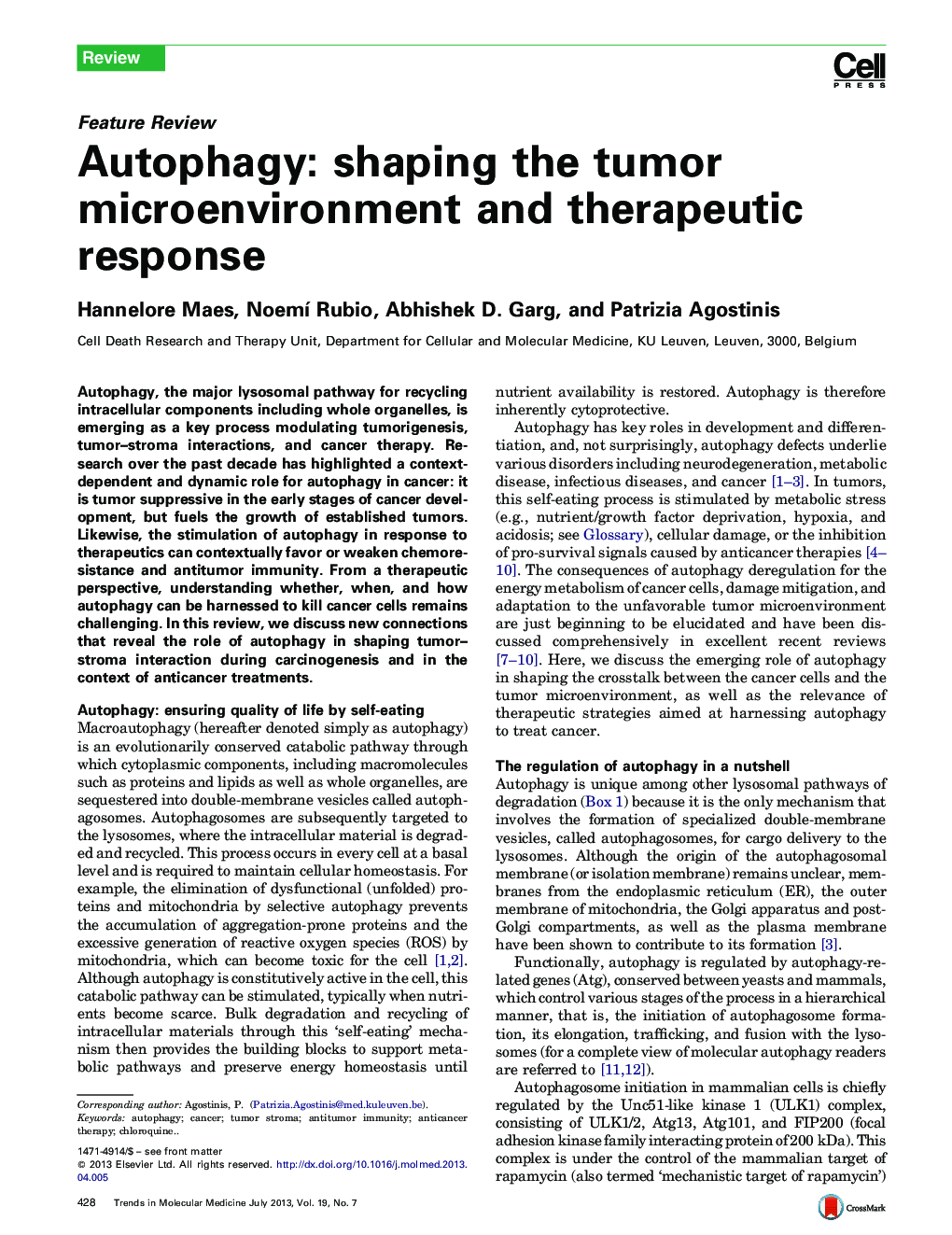| Article ID | Journal | Published Year | Pages | File Type |
|---|---|---|---|---|
| 2838615 | Trends in Molecular Medicine | 2013 | 19 Pages |
•Autophagy is an intracellular recycling pathway with an emerging plastic role in cancer.•Autophagy modulates both cancer cell-autonomous and non-autonomous processes.•The interface between cancer and stromal cells autophagy models the tumor landscape.•Autophagy impacts immunosurveillance and antitumor immunity.•Understanding how autophagy modulators affect tumor stroma is key in cancer therapy.
Autophagy, the major lysosomal pathway for recycling intracellular components including whole organelles, is emerging as a key process modulating tumorigenesis, tumor–stroma interactions, and cancer therapy. Research over the past decade has highlighted a context-dependent and dynamic role for autophagy in cancer: it is tumor suppressive in the early stages of cancer development, but fuels the growth of established tumors. Likewise, the stimulation of autophagy in response to therapeutics can contextually favor or weaken chemoresistance and antitumor immunity. From a therapeutic perspective, understanding whether, when, and how autophagy can be harnessed to kill cancer cells remains challenging. In this review, we discuss new connections that reveal the role of autophagy in shaping tumor–stroma interaction during carcinogenesis and in the context of anticancer treatments.
